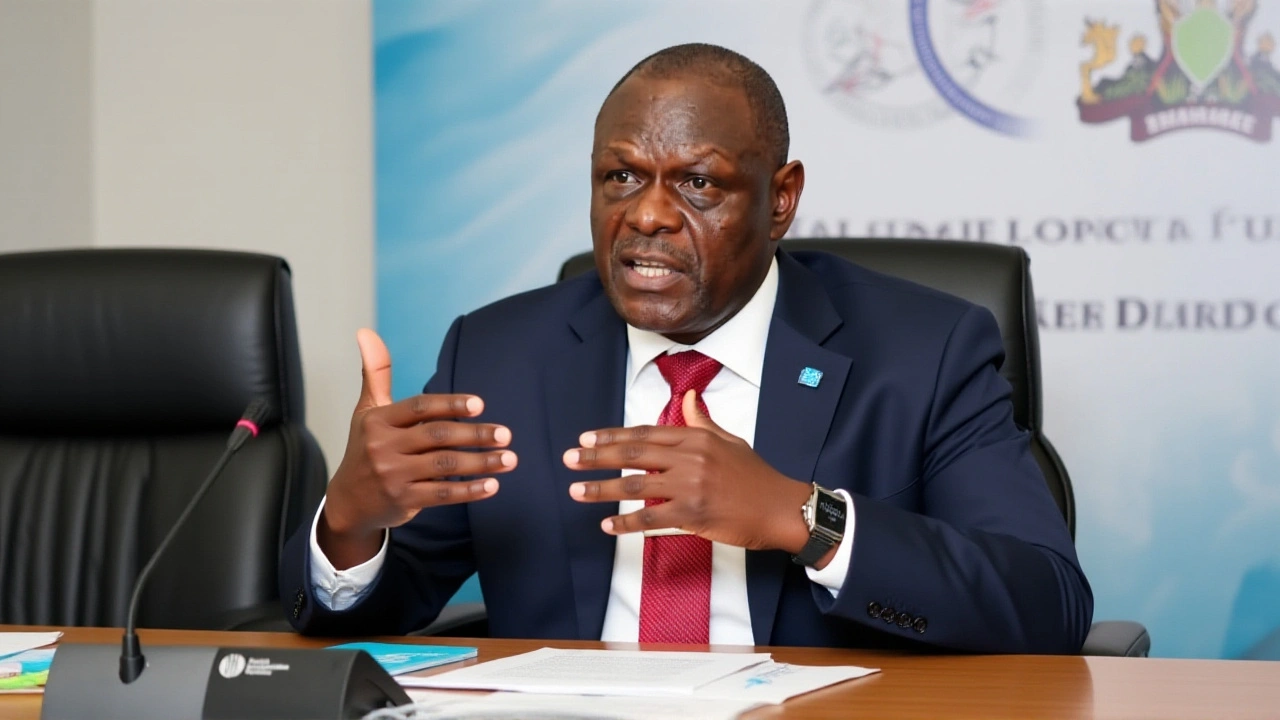Dr. Nelson Makanda – South African Health Expert, Research & Policy Insights
When talking about Dr. Nelson Makanda, a leading South African physician and public‑health researcher who bridges academia and community health. Also known as Nelson Makanda, his work focuses on disease surveillance, health‑system strengthening, and training the next generation of clinicians. Public health, the practice of preventing illness and promoting well‑being at the population level is the arena where he makes most of his impact, while Epidemiology, the study of how diseases spread and can be controlled provides the analytical tools he uses every day. Together they form a duo that fuels evidence‑based interventions across the country.
Why Dr. Makanda’s Approach Matters for Health Policy and Education
In South Africa, Health policy, the set of decisions and actions that shape the delivery of health services often determines whether research translates into real‑world change. Dr. Makanda constantly engages with policymakers, showing how data from disease surveillance, ongoing collection of health information to detect outbreaks early can inform resource allocation and emergency response. One clear semantic link is: Public health requires accurate surveillance, and effective health policy relies on that data to reduce morbidity. By teaching medical students how to analyze outbreak patterns, he links epidemiology with medical education, creating a pipeline of clinicians who can both treat patients and interpret population trends.
Beyond the lecture hall, Dr. Makanda’s collaborations with community clinics illustrate another triple: Community health workers, local staff who deliver basic care and health education feed field data into national databases, enabling faster detection of disease spikes. This feedback loop demonstrates how public health interventions are strengthened when community engagement meets robust epidemiological analysis. The result is a more resilient health system that can pivot during crises, such as the recent resurgence of vector‑borne illnesses in coastal provinces.
Dr. Makanda also champions research that tackles social determinants of health – factors like housing, nutrition, and education that influence disease risk. By publishing studies on how these variables intersect with infectious disease patterns, he provides policymakers with a richer evidence base. The semantic relationship here is: Social determinants, conditions in which people are born, grow, live, work and age shape health outcomes, the measurable changes in health status resulting from interventions, and research findings, data-driven insights that inform policy and practice bridge the two. This chain helps governments design programs that address root causes rather than just treating symptoms.
For readers who are new to his work, the collection below showcases how Dr. Makanda applies these principles in real settings – from outbreak reports in Gauteng to training modules for rural health practitioners. You’ll see concrete examples of data‑driven decisions, partnership models that link universities with health departments, and stories of how evidence influences legislation. Whether you’re a health professional, a policy maker, or just curious about South African medicine, these pieces give a front‑row seat to the impact of a dedicated researcher.
Below you’ll find a curated list of articles, interviews, and reports that illustrate the breadth of Dr. Nelson Makanda’s contributions. Dive in to see how public health, epidemiology, and policy intersect in everyday practice, and discover actionable insights you can apply in your own work or community.
Former KESSHA chief Alfred Kahi eyes IEBC seat in interview
Alfred Kahi, former KESSHA chairman, interviewed for an IEBC seat on 12 May 2025, promising transparent communication and digital reforms to restore voter trust.
Julian Parsons | Oct, 7 2025 Read More
